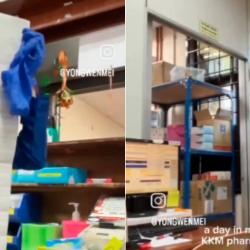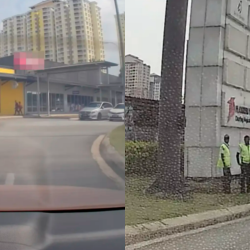UPDATE 9-As Tesla 'Battery Day' opens, Elon Musk outlines plan to halve battery cost
(Adds details on batteries)
By Tina Bellon
Sept 22 (Reuters) - Tesla Inc CEO Elon Musk described a new generation of electric vehicle batteries that will be more powerful, longer lasting and half as expensive than the company's current cells at Tesla's "Battery Day" on Tuesday.
Tesla's new larger cylindrical cells, called 4680, will provide five times more energy, six times more power and 16% greater driving range, Musk said.
"We do not have an affordable car. That's something we will have in the future. But we've got to get the cost of batteries down," Musk said.
Musk described planned improvements including changes to electrode materials, as well as improved cell design, production processes and integration into vehicles.
At the opening of the event, which drew over 270,000 online viewers, Musk walked on stage in a black t-shirt and jeans as about 240 shareholders -- each sitting in a Tesla Model 3 in the company parking lot -- honked their car horns in approval.
Musk said Tesla plans to release a revised "full self-driving version" of Autopilot in a month, "then people will really understand the magnitude of the change."
Ahead of the event, Tesla shares closed on Tuesday at $424.23, down 5.6% after Musk tweeted late Monday that the battery improvements to be unveiled at the event would not reach "serious high-volume production" until 2022. Shares rose 1.4% in after-hours trade.
As automakers shift from horsepower to kilowatts to comply with stricter environmental regulations, investors are looking for evidence that Tesla can increase its lead in electrification technology over legacy automakers who generate most of their sales and profits from combustion-engine vehicles.
Musk in July said scaling battery cell production at an affordable price was Tesla's biggest limitation to growth.
While average electric vehicle prices have decreased in recent years thanks to changes in battery composition, they are still more expensive than conventional cars, with the battery estimated to make up a quarter to a third of an electric vehicle's cost.
Some researchers estimate that price parity, or the point at which electric vehicles are equal in value to internal combustion cars, is reached when battery packs cost $100 per kilowatt hour (kWh).
Tesla's battery packs cost $156 per kWh in 2019, according to electric vehicle consulting firm Cairn Energy Research Advisors, which would put the cost of a 90-kWh pack at around $14,000.
Analysts at UBS expect Tesla to announce battery cell costs of $70 to $80 per kWh over the next three years, allowing the company to save roughly $2,300 per vehicle.
Such a price advantage would leave competitors unlikely to catch up to Tesla, the UBS analysts said.
Tesla currently produces batteries in partnership with Japan's Panasonic Corp at its $5 billion Nevada factory, while South Korea's LG Chem and China's CATL supply cells to its Shanghai factory.
Tesla is also building its own cell manufacturing facility at its new factory in Germany and is setting up a battery research and manufacturing facility at its largest vehicle factory in Fremont, California.
Musk in July also said Tesla was open to license and supply powertrains and batteries to other automakers.
(Reporting by Tina Bellon in New York, Akanksha Rana in Bengaluru, Noel Randewich in San Francisco and Paul Lienert in Detroit; Editing by Lisa Shumaker and Nick Zieminski)





